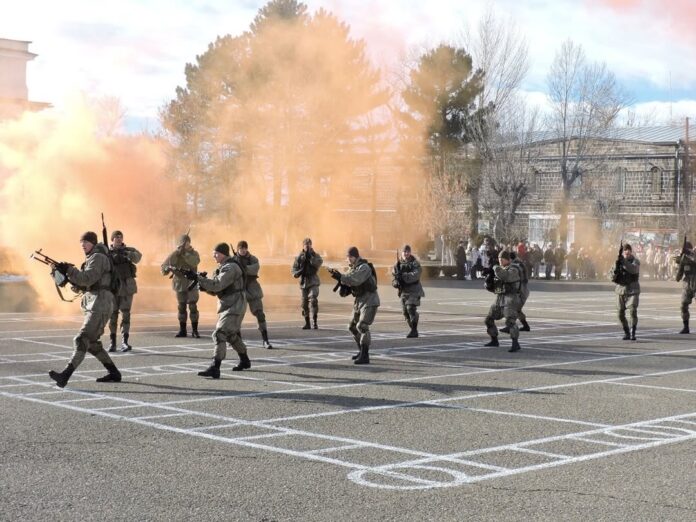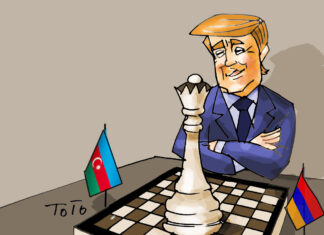A new knot is being added to the already tangled efforts of getting an Armenian-Azerbaijani peace treaty finalized.
Both sides have acknowledged that the treaty text is ready for signing, but an authoritative version has so far not been published. Azerbaijan has set several preconditions it says must be fulfilled before a signing ceremony can take place. Baku’s chief concern is a need for Armenia to amend its constitution to unequivocally recognize Azerbaijan’s sovereignty over the long-contested Nagorno-Karabakh territory.
On May 17, state-connected Azerbaijani media outlets floated a potential bombshell revelation – that one of the treaty’s provisions bars foreign (i.e. Russian) troops from being based on the territory of either state. That message was repeated by Hikmet Hajiyev, a presidential foreign policy adviser, in comments first published by the Iranian news agency Tasnim.
“External forces are trying to impose their views,” Hajiyev is quoted as saying. “Baku and Yerevan must determine the path to stability themselves.”
If accurate, a ratified treaty would seem to spell the end of the Russian 102nd military base outside the Armenian city of Gyumri. The current lease agreement runs until 2044.
“It remains unclear how this will be implemented in practice, considering that the base in Gyumri was created in 1995 on the basis of an intergovernmental agreement,” a commentary published by the Azerbaijani 1News outlet stated.








